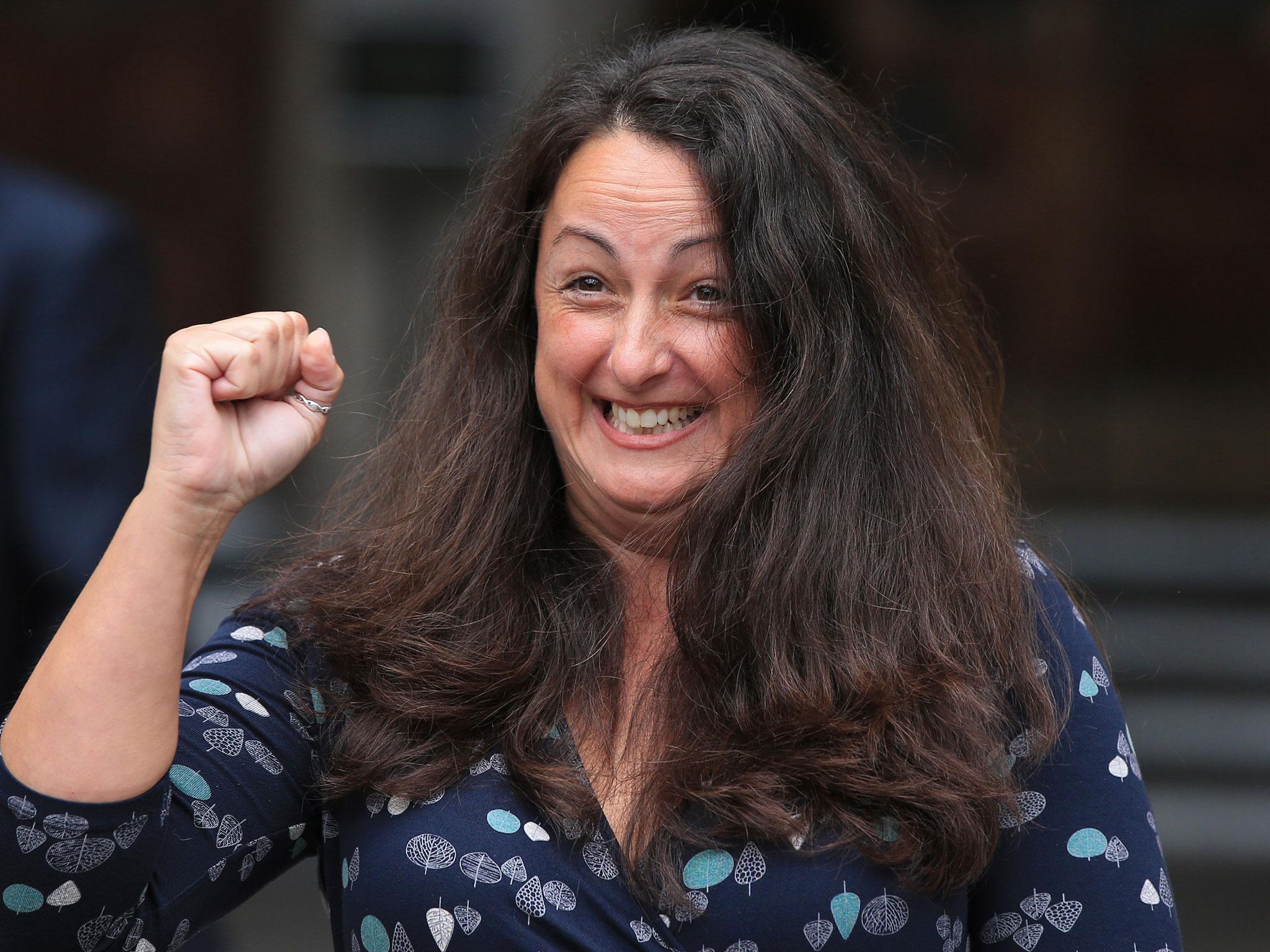Falklands veteran’s widow wins ‘last chance’ to have late husband’s child after High Court embryo storage battle
Samantha Jefferies, whose husband Clive died suddenly of a brain haemorrhage, said she did not have a plan for using the embryos soon but added: ‘I would love to be a mum’

The widow of a Falklands war veteran has won a High Court declaration that gives her a “last chance” to have her late husband's child.
Samantha Jefferies, 42, from East Sussex, was forced to go to court after the shock discovery that the 10-year period for storing the frozen embryos the couple had created had been inexplicably amended to just two years and had since expired.
Mrs Jefferies and husband Clive had been undergoing fertility treatment when he died suddenly, aged 51, of a brain haemorrhage.
A judge has now declared that the amendment to the storage period was “not valid” and the embryos, instead of being allowed to perish, can still lawfully be stored and used.
The declaration was made by Sir James Munby, president of the Family Division of the High Court, who said he would give his reasons later in writing.
With tears in her eyes, Mrs Jefferies said the judge's decision was “overwhelmingly fantastic - just brilliant, amazing”.
Mrs Jefferies, an occupational therapist, said she did not have a plan for using the embryos soon but added: “I would love to be a mum.”
She thanked the judge for Googling the history of her hero husband, who served in the Royal Army Medical Corps and was on board the transport ship Sir Galahad when it was bombed in the Falklands in 1982, killing 48 men.
She told the court her husband was “a wonderful man”, adding: “I want my husband's child.”
The Human Fertilisation and Embryology Authority (HFEA) had supported her application on the grounds that the amendment to the MT form - used to record consent for embryo storage - had not been signed by Mr Jefferies.
BMI Healthcare Ltd, which runs the Sussex Downs Fertility Centre, where the couple received treatment, also supported Mrs Jefferies and funded her legal costs. The judge said BMI seemed to have acted “with sensitivity and compasssion”.
Mrs Jefferies paid tribute to all those who had supported her “common sense” application and said: “It has given me faith in the law.”
In court, Jenni Richards QC told the judge: “Samantha has brought this case because the embryos she is seeking to preserve represent her last chance of having the child of her husband they had both so dearly wanted.”
Three embryos were created from Mrs Jefferies' eggs and her late husband's sperm, with consent for them to be stored for 10 years from 11 August 2013. Her husband also consented to their posthumous use.
The couple met in 1999 and married in December 2006 and always wanted to have children, the court heard.
After trying naturally for many years, they were referred in 2013 for NHS-funded IVF treatment, said Ms Richards.
A number of amendments were made to Mr Jefferies' consent form, including one specifying a reduction in the storage period from 10 years to two.
Most of the amendments were countersigned by Mr Jefferies, but the change to the storage period was not, said Ms Richards.
Mrs Jefferies did not know who made the amendment and it came as a shock when she discovered it.
Ms Richards said it was likely the amendment was made to reflect the clinic's policy at the time, which was to only offer storage for the period for which the NHS would provide funding.
There was evidence that the clinic had asked couples to amend their forms to two years if they had chosen a longer period of storage.
Granting Mrs Jefferies a declaration that storage and use was lawful until 11 August 2023, the judge said: “I am just so sorry that people like you should have no idea that this can end up in court because of mistakes made by other people who should have known better.”
PA
Join our commenting forum
Join thought-provoking conversations, follow other Independent readers and see their replies
Comments
Bookmark popover
Removed from bookmarks